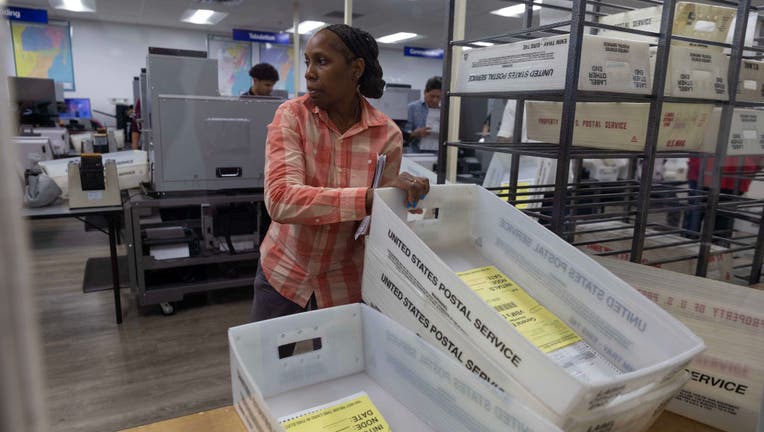Panel: Florida election law didn’t target Black voters

MIAMI, FL - NOVEMBER 08: Employees of the Miami Dade County of elections department begin counting mail in ballots on November 8, 2022 in Miami, Florida. After months of candidates campaigning, Americans are voting in the midterm elections to decide
TALLAHASSEE, Fla. (AP) - A federal appeals court upheld a Florida election law Thursday that a lower court had ruled was aimed at suppressing Black voters.
The 11th Circuit Court of Appeals said U.S. District Judge Mark Walker’s March 2022 ruling was flawed. The three-judge panel said in a 2-1 split decision that evidence did not show that lawmakers deliberately targeted Black voters.
The law tightens rules on mailed ballots, drop boxes and other popular election methods — changes that made it more difficult for Black voters who, overall, have more socioeconomic disadvantages than white voters, Walker wrote in his ruling.
Livestream FOX 35 News
Florida’s Republican-led Legislature has joined several others around the country in passing election reforms after Republican former President Donald Trump made unfounded claims that the 2020 election was stolen from him. Democrats have called such reforms a partisan attempt to keep some voters from the ballot box.
RELATED: Florida Senate passes controversial elections changes
Republican Gov. Ron DeSantis made the election bill a 2021 priority. The state was immediately sued by voting rights groups.
"We are deeply disappointed and disturbed by today’s appeals court decision, upholding a racist attack on our voting rights and rejecting the concerns of Black and Brown Floridians who are disproportionately impacted by SB 90," Jasmine Burney-Clark, founder of Equal Ground Education Fund, Inc., said in a statement. "Let’s be clear, Governor DeSantis and the Florida GOP passed this voter suppression law with the intent to silence Black voices and diminish the power of Black voters, who are a threat to their political power."
The two appeals court judges in the majority were both nominated by Republican presidents, and the dissenting judge was nominated by a Democratic president. Walker was also nominated by a Democrat.

